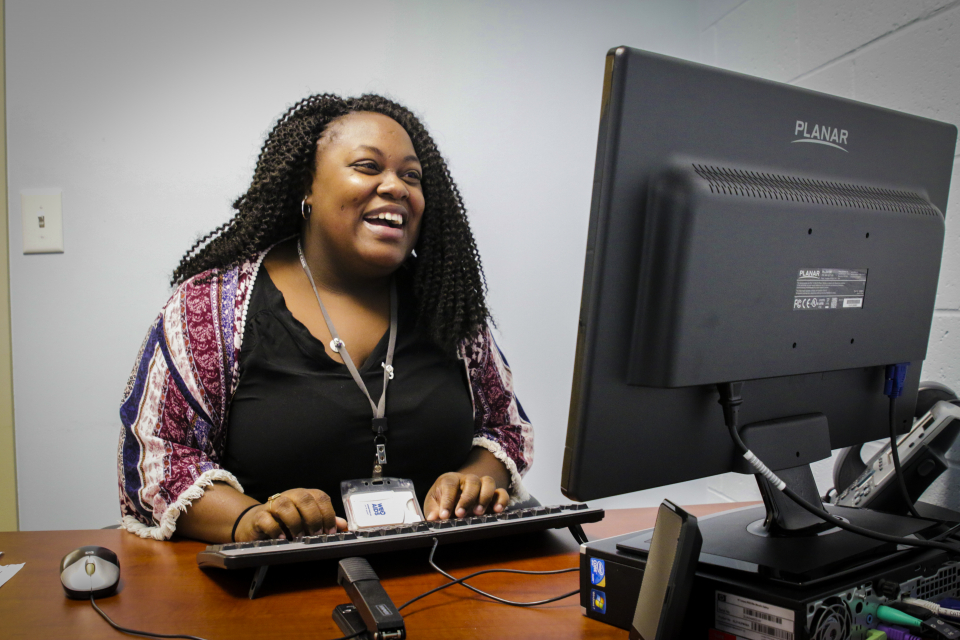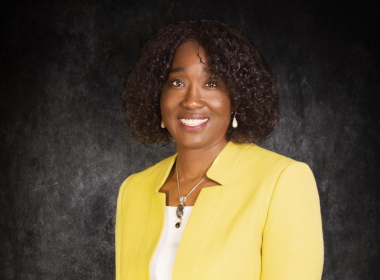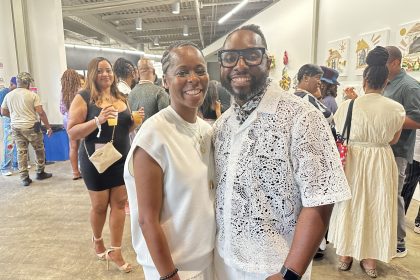
Meet Ebony Black. She likes the color royal blue because it’s “strong and it brings peace and love.” Black is the linkage to care navigator for Mercy Care, an Atlanta-based nonprofit that provides health care to poor and marginalized people. And, she is just what the doctors ordered at Mercy Care because she nurtures some of the most vulnerable people in our community.
Black also says the color is especially attractive to her because it “commands attention” and “represents superiority, honesty and loyalty. I am someone who can be trusted and dependable in a time of need.”
Here, Black discusses the peer to peer support group and why she is a woman of service.
How would you best describe Ebony Black?
I would describe myself as being bold, courageous, studious, small in stature but very vocal and ambitious.
Describe your specialty and why you chose to focus on this area of health.
I work as the linkage to care navigator at Mercy Care. This job requires me to work with HIV-positive patients who are either newly diagnosed or those that have fallen out of care and need to get linked back in. I was first introduced to the field of public health while a student at Agnes Scott College. I was given the topic of HIV/AIDS. I had to explain how as a public health practitioner I could decrease the number of transmissions in Atlanta. I had the pleasure of interviewing many HIV positive patients. I learned about their hardships and the different ways they contracted the virus. What was most significant about this assignment was I left the interview wishing that I could change their perspective [on] the disease.
In your current job what are three challenges you face?
1. Housing: Rent in the city of Atlanta has increased tremendously. Many of my patients are on a fixed income, working minimum wage jobs or living on a disability [check], which does not cover all their expenses and rent in Atlanta. As a result, many of my patients become or remain homeless.
2. Stigma: There are so many negative connotations associated with HIV/AIDS. It is extremely hard for our patients to accept the fact that they have HIV. They often fear they are going to die or they will never be able to find love again or have children.
3. Accountability: We often see patients that have been HIV positive for 15 plus years, but have never remained in care longer than two years.
I understand that you are an innovative person. You started a Peer Support Group at Mercy Care, tell us about the peer group and its purpose.
The EIC Peer Support Group provides knowledge, experience, emotional and practical help to others. Most, importantly, we listen and offer comfort and encouragement to those going through difficult circumstances. Our group meets once a month on a Wednesday from 6 to 7 p.m. For each meeting food, MARTA cards and gift cards are provided. An amazing nurse case manager, Danielle Cole, who also used to lead the group with me, introduced the “support group convenience store,” where group members can get essentials like toothbrush, toothpaste, laundry detergent and soap. The success of the store has also gotten many employees of Mercy Care involved as they are donating clothes and supplies.
During our meeting, our patients ask questions and talk openly about the many issues they face with being HIV positive. In some meetings we are crying and others we are laughing, but we are experiencing these emotions together.
Since the conception of the Peer Support Group, can you tell us a success story?
One day in April I was called to meet an older lady who was new to Atlanta. She wanted to get linked into care. Ms. H was very sweet but she feared she was going relapse if she returned to her old surroundings. That day I was able to get her linked back into care, but Ms. H only had two days left in emergency housing and was in the need of transitional housing. After meeting with her and a member of case management, she was able to obtain a bed in transitional housing. Ms. H started attending support groups and participated in all discussions offering her insight. She completed her six-month stay at the transitional housing and is getting ready to take her final test to get her GED. In our last meeting, we had the pleasure of congratulating her about obtaining her new apartment and three job offers.
Finish the following sentences:
I am committed to providing … care to the poor and to those who are less fortunate.
I work to make a difference by … treating each client as if they are my very own family member or friend.
A great day for me at work results in … having another patient successfully linked into care and to have that patient to know that they can control HIV and that HIV will not control them.
















